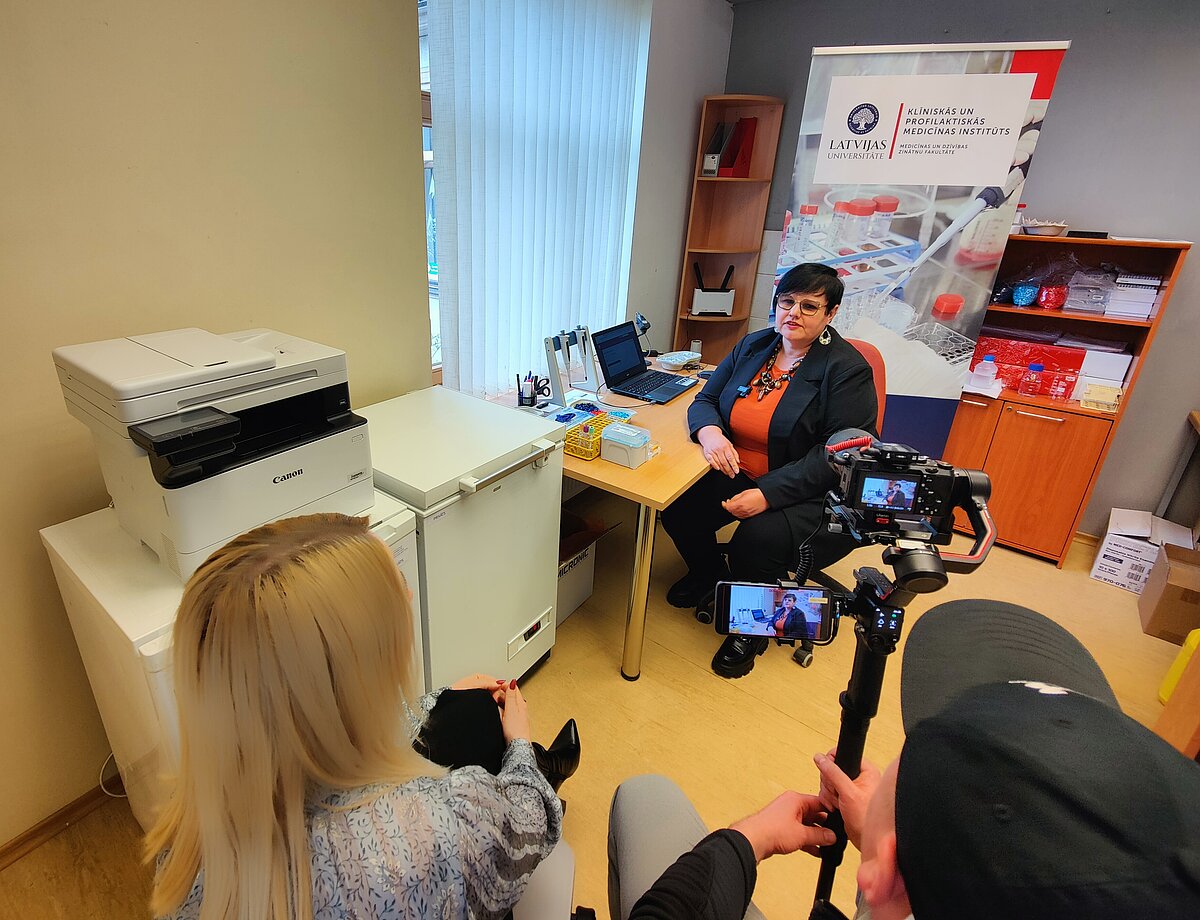
By the end of the enrollment period in 2023, a total of 11,223 residents of Latvia had participated. This study, unique in Europe and conducted only in Latvia, is one of the longest and most comprehensive studies in Latvian medical history. It is led by Professor Mārcis Leja, a gastroenterologist at the University of Latvia’s Institute of Clinical and Preventive Medicine (LU KPMI).
GISTAR study participants who were found to be infected with the stomach-dwelling bacterium Helicobacter pylori (H. pylori) received treatment aimed at eradicating the bacteria. The follow-up examinations are currently underway and will continue until February 2026. Follow-up invitations have already been completed in Cēsis (332 participants), Alūksne (331), Ludza (546), Saldus (548), and Rēzekne (1,111).
Some participants who received treatment for *H. pylori* eradication are now undergoing a specially developed breath test to determine whether the eradication was successful. *H. pylori* is considered one of the causes of gastric cancer. Blood samples have also been collected from all participants to measure various inflammation and metabolic parameters. These tests will also be conducted on samples collected nine years ago and stored frozen in a laboratory. The old and new results will be compared to study potential correlations between test changes, health events, and the use of H. pylori eradication medication.
All participants were offered a fecal immunochemical test to detect hidden blood in the stool. Those with positive results were recommended to undergo a colonoscopy—a procedure that can detect and remove polyps, thereby reducing the risk of colorectal cancer.
Dr. Danute Ražuka-Ebela, a researcher and gastroenterologist at LU KPMI, emphasized that currently there is no effective gastric cancer screening method in Europe, making the GISTAR study unique not only in Latvia but also at the European level:
“With this study, we are exploring new strategies for reducing gastric cancer mortality in high-risk areas such as Latvia. Previous research indicates that eradication of H. pylori, which promotes the development of gastric cancer, could reduce gastric cancer-related deaths by up to 40%. It is therefore crucial to find practical ways to implement such prevention.”
"In absolute numbers, the total number of newly diagnosed gastric cancer cases in Europe is increasing. The Council of the European Union has recommended implementing screening programs in regions with high incidence and mortality rates. Latvia fits this adverse statistical profile. However, no organized gastric cancer screening programs have been established in Europe so far. While several methods exist to reduce the burden of gastric cancer, the 'search and treat' strategy for H. pylori infection currently seems the most suitable for Europe. It is expected that projects such as GISTAR, EUROHELICAN, TOGAS, and EUCanScreen will provide the necessary evidence to determine the most effective methods for reducing gastric cancer risk. The results will be significant not only for Latvia but also for other European countries with similar statistics and even for countries outside Europe. We already know that GISTAR study data will provide important new insights both in Europe and globally,” emphasized Professor Mārcis Leja.
Data collected in the GISTAR study are also used in other research projects:
- TOGAS (Towards Gastric Screening implementation in the European Union)
- EUROHELICAN (Accelerating gastric cancer reduction in Europe through *Helicobacter pylori* eradication)
- EUCanScreen (European Joint Action on Cancer Screening)
Before the center’s opening, staff underwent training where they were introduced to the study website, data usage and security protocols, the GISTAR data management system, study protocols, participant enrollment procedures, and practiced standard operating procedures.
LU KPMI lead researcher Dr. sc. ing. Sergejs Paršutins introduced staff to data entry systems, security protocols, and data storage conditions. Senior expert Aiga Rūdule provided information about the project’s specific requirements, expected outcomes, and quality control, as well as the GISTAR study design, goals, and tasks.
A lecture on the potential to reduce gastric cancer mortality and the European perspective on this issue was delivered by the scientific leader of the GISTAR study, LU KPMI director, gastroenterologist, and University of Latvia professor Mārcis Leja.
 CONFERENCE
CONFERENCE